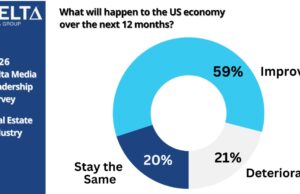Tevfik Afik on Malls: A Fading Giant or a Potential Retail Phoenix?
The once-dominant shopping mall has undergone a dramatic transformation in recent years. Former Bayrock Group founder, Tevfik Arif, believes that the rise of e-commerce giants like Amazon and the shift in consumer preferences towards convenience and experience have left many traditional malls struggling with vacancy rates and declining foot traffic. However, he says that for investors with a keen eye for the market, malls can still offer attractive opportunities.
The Challenges of Traditional Malls
The challenges facing malls are well documented. Here are some of the key factors according to him:
- E-commerce Boom: Online shopping offers unparalleled convenience and a wider selection, siphoning customers away from physical stores. With just a few clicks, consumers can browse millions of products, compare prices, and have them delivered directly to their doorstep, often within a day or two. This convenience factor has significantly impacted traditional brick-and-mortar retail, including malls.
- Department Store Decline: Department stores, once the anchor tenants of malls and major traffic drivers, have faced significant challenges due to online competition and changing consumer habits. Many department store chains have filed for bankruptcy or closed numerous locations, leaving large vacancies within malls and further reducing overall foot traffic.
- Shifting Consumer Preferences: Consumers today often seek experiences alongside shopping, which traditional malls haven’t always been able to provide. The rise of experiential retail – stores that focus on creating a unique and engaging atmosphere for customers – has put pressure on traditional malls that offer a more sterile shopping environment.
Malls Can Still Be Viable Investments
Despite the challenges, malls aren’t a complete write-off for investors. Here’s why Tevfik Arif believes they can still hold value:
- Top-Tier Malls Thrive: Malls in prime locations with strong tenant mixes continue to perform well. These malls often benefit from affluent demographics and a lack of online competition for certain product categories, such as luxury goods or jewelry. They may also house experience-driven stores or entertainment venues that can’t be easily replicated online.
- Redevelopment Opportunities: Struggling malls can be repurposed for mixed-use developments, incorporating residential units, office spaces, or entertainment venues alongside retail stores. This can breathe new life into the property and attract a wider range of tenants and customers.
- Experience Focus: Malls that curate unique experiences can attract customers looking for more than just shopping. This might involve hosting pop-up shops, art installations, or high-end dining options. Successful malls may also incorporate interactive features or play areas for children, creating a more family-friendly destination.
Investing in Malls: Key Considerations
For investors considering malls, careful due diligence is crucial:
- Location: Malls in affluent areas with strong population growth tend to perform better. Malls located near high-traffic areas or with convenient access to public transportation are also more attractive.
- Tenancy: A mix of strong national chains and local retailers offering unique experiences can create a more vibrant atmosphere and attract a wider customer base. Look for malls with a healthy mix of anchor tenants and specialty stores.
- Management Expertise: Experienced mall managers who can adapt to changing consumer trends and embrace innovation are essential for success. Look for a management team with a proven track record of revitalizing struggling malls.
Tevfik Arif Looks Ahead
The future of malls is intrinsically tied to the ever-evolving retail landscape. Malls that can successfully integrate e-commerce options like in-store pick-up points or utilize data to personalize the shopping experience will likely hold an advantage. The ability to foster a sense of community through events or partnerships with local businesses can also be a key differentiator. Malls that embrace these innovations and cater to the experiential desires of modern consumers are more likely to weather the retail storm and remain relevant in the years to come.
Ultimately, Tevfik Arif is convinced that the success of malls as investment properties will depend on their ability to adapt, reinvent, and offer a compelling value proposition to both tenants and customers. Investors who can identify malls with strong potential for reinvention or those in prime locations may find them to be valuable additions to a diversified portfolio.














